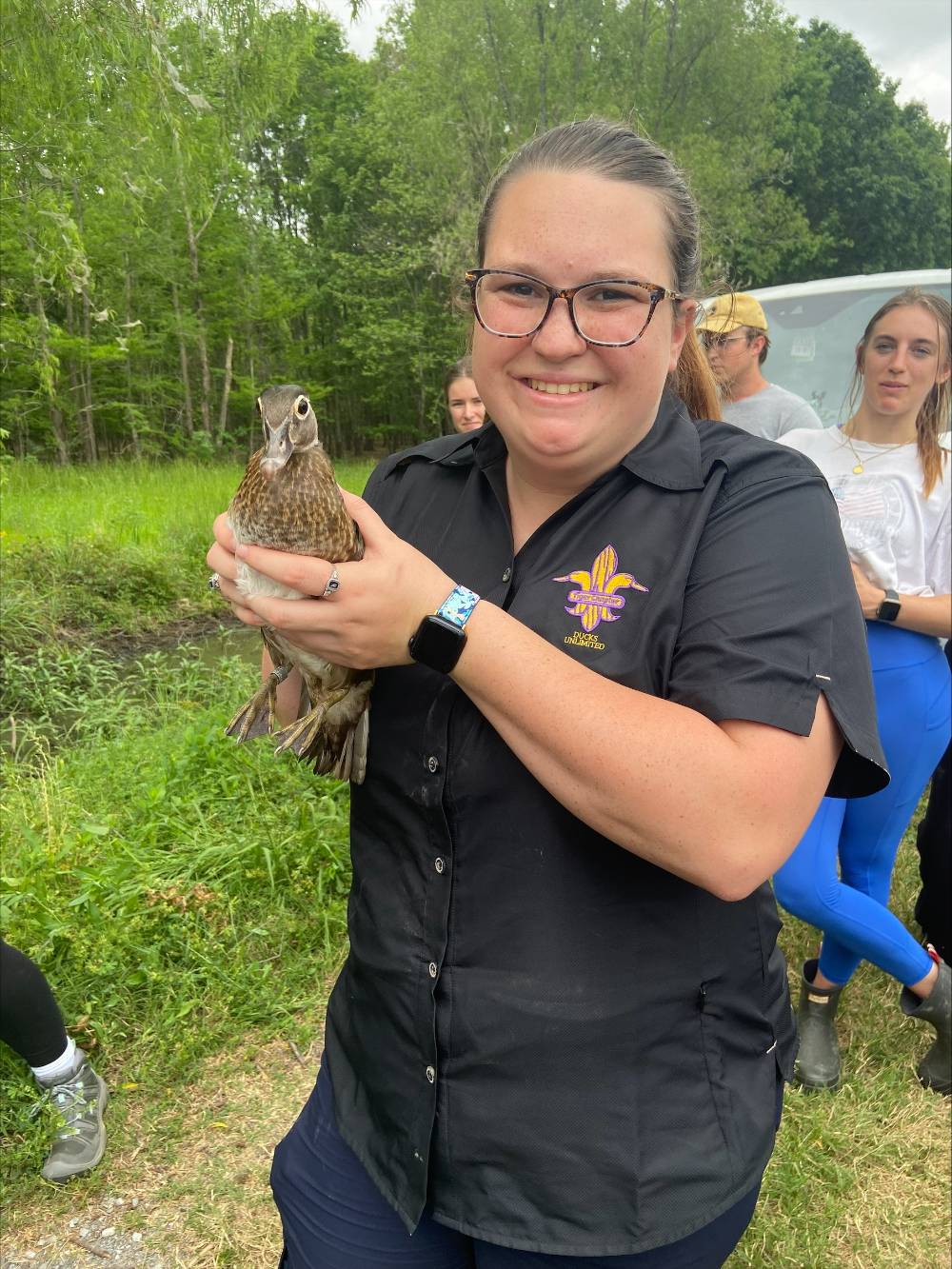Rooted in the Boot: LSU Grad Janice Pearson Turns Her Passion Into Wildlife Research
May 16, 2025
Baton Rouge native and new LSU graduate Janice Pearson has always been passionate about Louisiana’s wild spaces. With a natural resource and ecology management degree, she’s turning that passion into purpose as she steps into a new role with LSU’s School of Renewable Natural Resources as a wildlife research technician.

As a Wildlife Research Technician. LSU graduate Janice Pearson will collect data on Black-bellied whistling ducks, wood ducks, and mottled ducks.
After three years as a student worker assisting with waterfowl studies and wildlife distribution research at the Reproductive Biology Center at the LSU AgCenter’s Central Research Station, she’ll join the same department as a full-time staff member. Her work will take her from her office on LSU’s campus to several state wildlife management areas (WMAs) each week to conduct field work, where she’ll collect data on Black-bellied whistling ducks, wood ducks, and mottled ducks.
“I chose this job because I want to do wildlife research and it was a great option for my first job,” she said.
Through her fieldwork and research, she hopes to inspire a deeper appreciation for the environment. “I hope that I can help spread knowledge and love of our environment and nature and help people love it more than they do, respect what we have, and know how they can help our ecosystems even in the easiest ways like planting more native plants in a flower bed, or various smaller doable projects just about anyone can do.”
Pearson’s love for wildlife and conservation was also fueled by her involvement in Ducks Unlimited and the Wildlife Society during her time at LSU. She fondly remembers helping with a rail drag at Rockefeller Beach alongside the Audubon Society as one of her most memorable experiences.
"A rail drag is a tactic used to catch and band a specific type of marsh bird called rails. There are several different species of rails, but they all live in the marsh grasses. We take a long rope with bottles attached to it and rocks inside of it, and we basically drag it through a designated area of the marsh grass. This causes the rails to 'flush,' or jump up and out of the grass. Then others who aren’t dragging the rope gently place a net on top of the birds. If the bird is not banded, we will place a band on for identification, and collect measurement data like the length of their wing and tail feathers, and other things depending on the project objectives. From there we’re gently release them and continue walking the section of field and repeat the process. It’s very tedious but fun!
“I met so many people and developed a lot of amazing connections and relationships that are invaluable,” Pearson said.
Looking ahead, she hopes to pursue a master’s degree, with a focus on predator-prey relationships through spatial ecology and habitat management.
“Predators are crucial to the health of our land. They play such an important role at keeping prey species under control and many other benefits. Their role is what is classified as a ‘keystone’ species, which is a species that has the crucial role of keeping the ecosystem in balance and in good health.”
For her, LSU has been more than just a university, it was a launching pad.
“LSU has so many great options for people. It's a great community, and I love the spirit and love people have for LSU,” Pearson said.
Next Step
Discover stories showcasing LSU’s academic excellence, innovation, culture, and impact across Louisiana.


